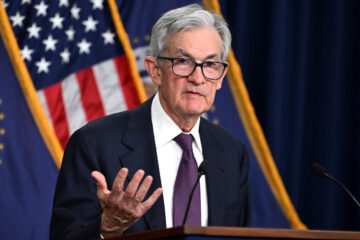Like many retailers across the country, Ulta Beauty (ULTA) is navigating a tough economic environment amid inflation and the looming threat of tariffs.
Despite recently seeing a small boost in sales during the first few months of this year, the beauty retailer has made a bold move, signaling that it is cautious about future customer behavior.
💵💰Don’t miss the move: Subscribe to TheStreet’s free daily newsletter 💰💵
In Ulta’s first-quarter earnings report for 2025, it revealed that its comparable sales increased by 2.9% year-over-year. Specifically, the number of transactions in its stores increased by 0.6%, while the average amount of money customers spent per transaction spiked by 2.3%, which was primarily driven by higher prices.
Related: Ulta Beauty makes drastic decision on Target partnership
Despite the boost in sales, the foot traffic in Ulta’s stores declined during the quarter, according to recent data from Placer.ai. The average number of visits customers made to each of its locations dipped by roughly 7%.
Ulta Beauty has seen healthy sales but remains vigilant regarding customer trends.
Image source: Jones/Bloomberg via Getty Images
Ulta Beauty CEO sounds alarm on customer behavior
During an earnings call on May 30, Ulta Beauty CEO Kecia Steelman said that fragrance sales performed the strongest during the quarter, with brands such as XO Khloé by Khloé Kardashian and Noyz performing well.
Skincare and wellness sales also increased; however, hair care sales remained flat, while makeup sales “decreased slightly.”
“Consumer engagement with beauty remains healthy, and our insights indicate beauty and wellness remain a top priority for beauty enthusiasts who tell us that they’re more willing to make tradeoffs in other discretionary areas to maintain their beauty regimens,” said Steelman during the call. “At the same time, they are cautious, and value is an increasingly important priority as they navigate ongoing wallet pressures.”
Related: Ross Stores makes drastic decision customers will see in stores
She also said many consumers are “leaning into beauty as a comfort and escape from the stress of macro uncertainty,” and the company expects that this emotional connection will support the company’s sales going forward.
However, despite this pattern of customer behavior, she warned that customers could quickly change their tune as they navigate a tough economic environment.
“While they tell us that they intend to prioritize beauty and wellness, that’s what they say, but they could also do something very different depending on the environment,” said Steelman.
Ulta Beauty makes a drastic decision amid growing threat
In response to this risk, Ulta has updated its sales expectations for the rest of the year. It expects its comparable sales for the year to either remain flat or increase by 1.5%. Previously, it expected its sales to increase by no more than 1%.
Ulta said the updated outlook reflects expectations that its comparable store sales will either decrease by low single digits or modestly increase during the second half of the year.
More Retail:
Costco quietly plans to offer a convenient service for customersT-Mobile pulls the plug on generous offer, angering customersKellogg sounds alarm on unexpected shift in customer behavior
“While the beauty category has historically been resilient through economic downturns, it has not been immune to consumer pressure,” said Ulta Beauty Chief Financial Officer Paula Oyibo during the call. “The operating environment continues to be very dynamic, and the evolving global trade landscape has created more uncertainty related to consumer wallet pressures, especially for the second half of the year.”
The move from Ulta comes during a time when many consumers are worried about the impact President Donald Trump’s tariffs (taxes companies pay to import goods from overseas) will have on their finances.
In April, Trump imposed a 10% baseline tariff on all countries and paused reciprocal tariffs. The pause on reciprocal tariffs will end in July, and as a result, about 60 countries will see higher tariff rates. This will likely cause U.S. consumers to see inflated prices for everyday goods.
Trump’s tariff policy has led to uncertainty, especially since it has changed multiple times and was recently challenged in federal court.
According to a recent survey from market research company Numerator, 72% of consumers are worried that tariffs will raise prices for everyday goods. Also, 85% are concerned that tariffs will impact their personal finances, while 83% will adjust their shopping behaviors to prepare for tariffs.
Related: Home Depot struggles to reverse concerning customer behavior


